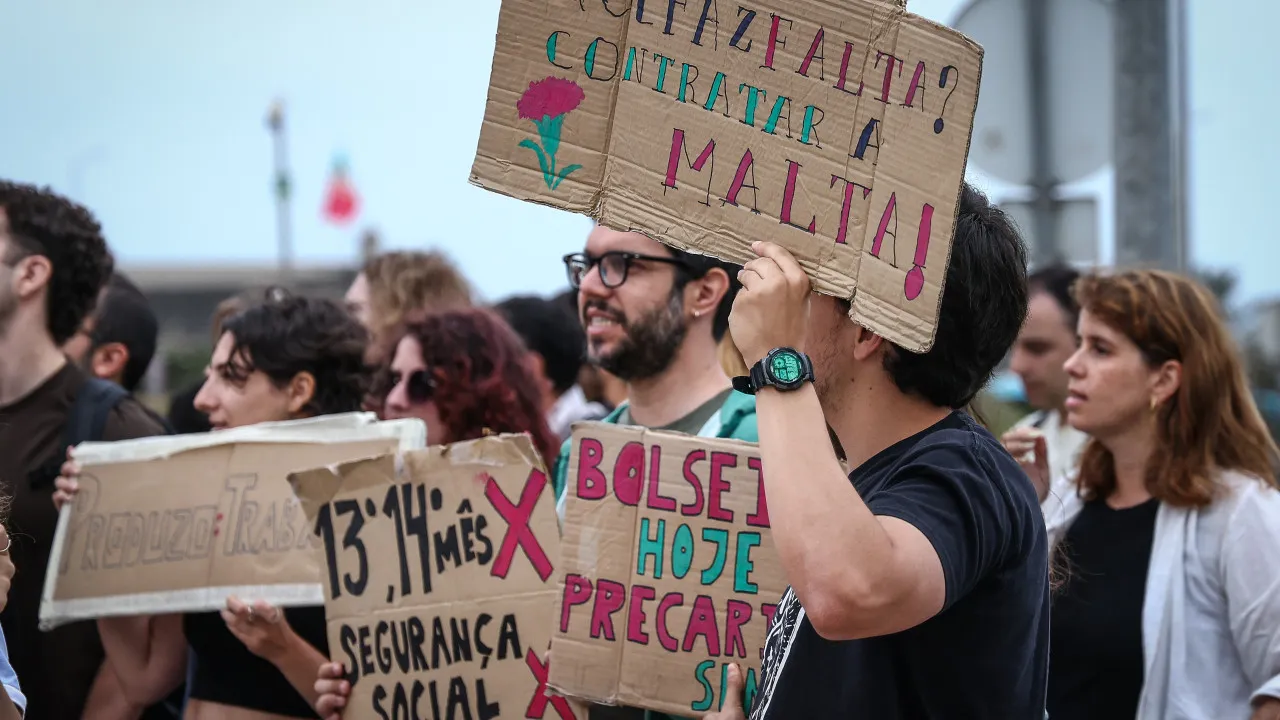
The new legislative proposal was announced by the General Secretary of the PCP, Paulo Raimundo, during a gathering of scientific researchers advocating for public science and an end to job insecurity, held in front of the Nova SBE University in Carcavelos, Cascais.
Speaking to journalists, Paulo Raimundo explained that the bill aims to address the precarious conditions present in the scientific research sector, emphasizing that national scientific development cannot sustain “thousands of researchers, scientists, and teachers in precarious situations.”
The PCP’s legislative proposal suggests a transitional regime to ensure the integration into the scientific career path of all researchers with precarious ties, including research grant holders, who meet criteria such as having accumulated “three or more years of research activities, consecutive or interpolated.”
Paulo Raimundo stated to journalists that the goal of the bill is to “provide stability, work contracts, and career prospects to researchers in precarious situations,” and thereby create the conditions for the country to have a “scientific and technological development project.”
“Investment needs to be made here, not in other absurdities,” he stated.
The General Secretary of the PCP accused the Government of lacking the political will to resolve the precarious nature of scientific research, contending that it treats science as a business and subjects the national scientific development project to “large European projects, major companies, and European corporations.”
“A country cannot be dependent on others’ wills. It’s not about closing ourselves off to the world. We are not Belgium; we have the sea, Belgium does not. We don’t have Swiss watches or chocolates, but we have good coffee, we have good wine. These are somewhat caricatured examples but meant to illustrate that the country cannot depend on the scientific development desires of others,” he remarked.
Former BE deputy Joana Mortágua also attended the gathering, which coincided with the start of a science conference inside the university featuring the opening speech by Secretary of State for Science and Innovation, Helena Canhão.
Joana Mortágua told journalists that “there is no future for science in Portugal with such precarious researchers, scientists, and academics,” accusing the Government of being “cruel and hypocritical” for claiming to want to attract “qualified immigrants by offering special conditions” while simultaneously “urging those it trained in Portugal to emigrate.”
Among the measures she advocated for the sector, Joana Mortágua emphasized the need to implement a transitional norm immediately to secure the employment of two thousand university researchers at risk of unemployment.
The former BE deputy also mentioned that the Government and the Foundation for Science and Technology (FCT) decided to cut “part of the funding for research centers,” which she claimed would exacerbate job insecurity. She highlighted that upcoming reforms to the Legal Regime of Higher Education Institutions (RJIES) could also ensure “the future of those working in science.”
“The solutions are there. Now, it seems to me that the right lacks the political will to invest in the scientific system because it requires public investment,” she stated.




